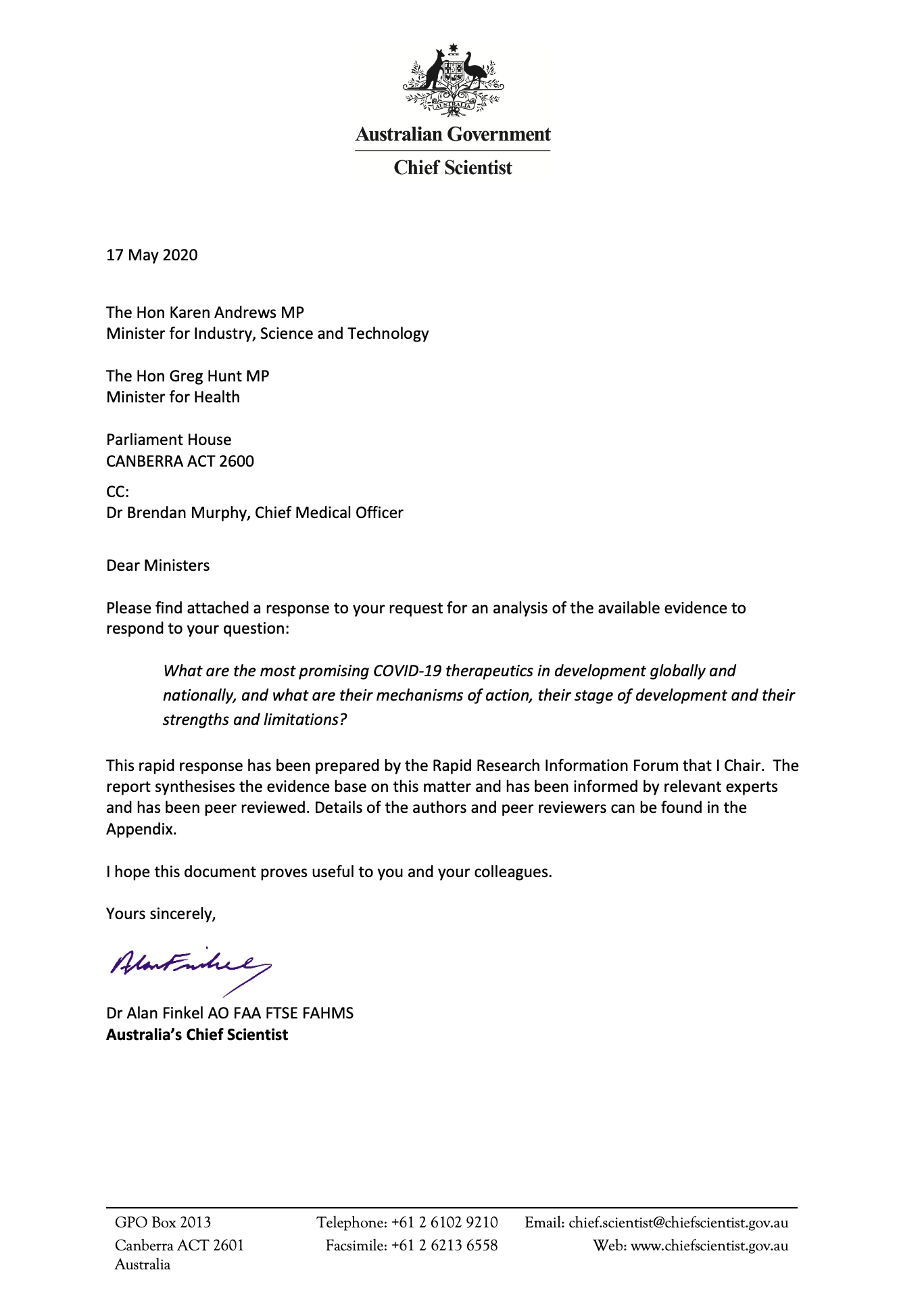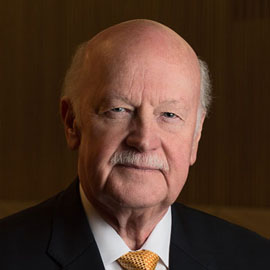
updated: 6 July 2020 original published date: 17 May 2020
This rapid research brief synthesises the evidence on the most promising COVID-19 therapeutics in development globally and nationally, their mechanisms of action, their stage of development and their strengths and limitations.
The original brief was delivered on 17 May 2020 and the most recent update was provided on 6 July 2020.
There are over 300 potential COVID-19 therapeutics being explored in pre-clinical testing and of these, 200 are in clinical trials.
Preliminary Phase III clinical trial data are now available for remdesivir and indicate that it mayquicken recovery for COVID-19 patients. However, there is no statistically significant evidence of a reduction in mortality rates. The National COVID-19 Clinical Evidence Taskforce in Australia has given remdesivir a conditional recommendation, meaning its use as a therapeutic outside the context of clinical trials may be considered.
Emerging results on the use of hydroxychloroquine as a therapeutic suggest it may not be effective, but these data are still being peer reviewed. Use for post-exposure prophylaxis is still under investigation but early results have not shown a benefit. Use for pre-exposure prophylaxis is still under investigation.
Dexamethasone, a corticosteroid, is the first drug shown to improve the survival of hospitalised COVID-19 patients requiring respiratory support, including supplemental oxygen and invasive ventilation.
Emerging evidence suggests that anticoagulation therapy could be used to prevent thrombotic complications in patients with severe COVID-19.
The first randomised clinical trial of convalescent plasma therapy suggests it may not improve time to recovery for hospitalised patients, but the available data are currently limited.





© 2025 Australian Academy of Science